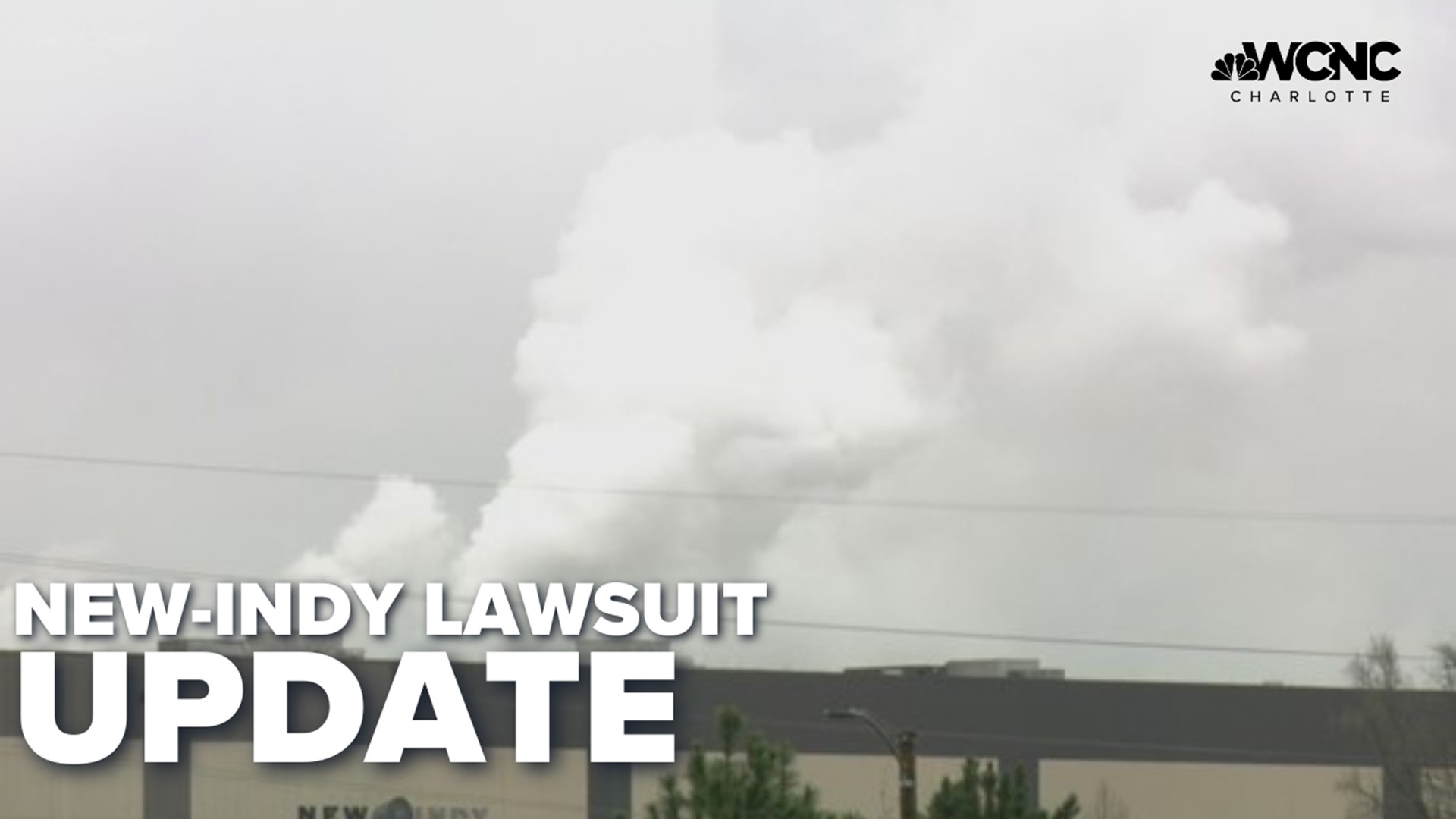CATAWBA, S.C. — The Catawba Riverkeeper Foundation joined a lawsuit against the New-Indy Containerboard plant in Catawba, South Carolina. It's the latest action in the ongoing saga involving the beleaguered plant that is owned by New England Patriots owner Robert Kraft.
The foundation said it joined the lawsuit to protect and preserve the river. Specifically, the foundation is going beyond the river's appearance and questioning what's in the water.
New-Indy has been in rough water for years. Residents over time have highlighted how the paper mill has impacted the environment and those who live around the plant. In previous reporting from WCNC Charlotte, neighbors have said the plant continues to release smelly gas into the air.
"Our best interest and our members' best interest to intervene in this case," Catawba Riverkeeper Brandon Jones said. "This is in violation of the 2020 Clean Air Act."
Jones said much of New Indy's water waste is stored in lagoons. But he said the lagoons are not lined, so waste can seep into the ground. He said when it rains, the runoff can flow downstream and into the Catawba River.
“We are arguing here they need to make sure all their waste is stored in lined storage and it’s not impacting our ground and surface waters," Jones said.
New Indy sent WCNC Charlotte this statement:
New-Indy declines to be interviewed on the record for your story, in keeping with its general policy pertaining to ongoing litigation. Instead, please refer to an earlier statement about the lawsuit.
Also, below is relevant information from SC DHEC about the dioxin issue at the Catawba Mill. Foremost is the first item, a recent study conducted with the Catawba Riverkeeper that found no evidence of dioxin contamination in the river water. The Riverkeeper’s positions regarding the lawsuit and in the study are contradictory.
“That is accurate, but we went back out and we sampled groundwater, about to go in, and we did find evidence and that is a factor of dilution," Jones said, responding to the statement.
PREVIOUSLY: Tighter restrictions in place for New-Indy
Jones added this is solely not a New-Indy problem. He notes there were other companies who created problems for the area, but due to the new Clean Air Act, it's up to New-Indy to follow the rules.
Full new Indy Statement:
New-Indy declines to be interviewed on the record for your story, in keeping with its general policy pertaining to ongoing litigation. Instead, please refer to an earlier statement about the lawsuit.
Also, below is relevant information from SC DHEC about the dioxin issue at the Catawba Mill. Foremost is the first item, a recent study conducted with the Catawba Riverkeeper that found no evidence of dioxin contamination in the river water. The Riverkeeper’s positions regarding the lawsuit and in the study are contradictory.
- Catawba River New-Indy Water Special Study: “Water quality sampling upstream and downstream of the New-Indy discharge does not show any indication that the discharge has had any impact to the water quality in the Catawba River watershed.”
- DHEC statement Oct. 26, 2022: “To date, extensive data has been reviewed by DHEC that has not indicated a release of dioxins into the Catawba River… Dioxin has been detected at very low concentrations in groundwater at some onsite monitoring wells, but the levels detected are well below maximum contaminant levels for drinking water… All previous data and information do not suggest a potential risk of impact to drinking water sources.”
- DHEC Website: “Our periodic monitoring assessment reports have indicated localized groundwater impact by petroleum and cleaning solvent constituents, and metals at low concentrations at various locations on the plant property. There is no evidence of contamination leaving the property in groundwater.”
- DHEC Website: The available data and information do not suggest a potential risk of impact to drinking water sources.
- DHEC Website: “DHEC has been in close communication with local public drinking water suppliers to the area. The intake for drinking water systems supplying the neighborhoods in the area is UPSTREAM from the New Indy discharge. The nearest downstream drinking water intake is 9 miles downriver. At this time no issues have been identified that are affecting drinking water quality.”
Contact Austin Walker at awalker@wcnc.com and follow him on Facebook, Twitter, and Instagram.

